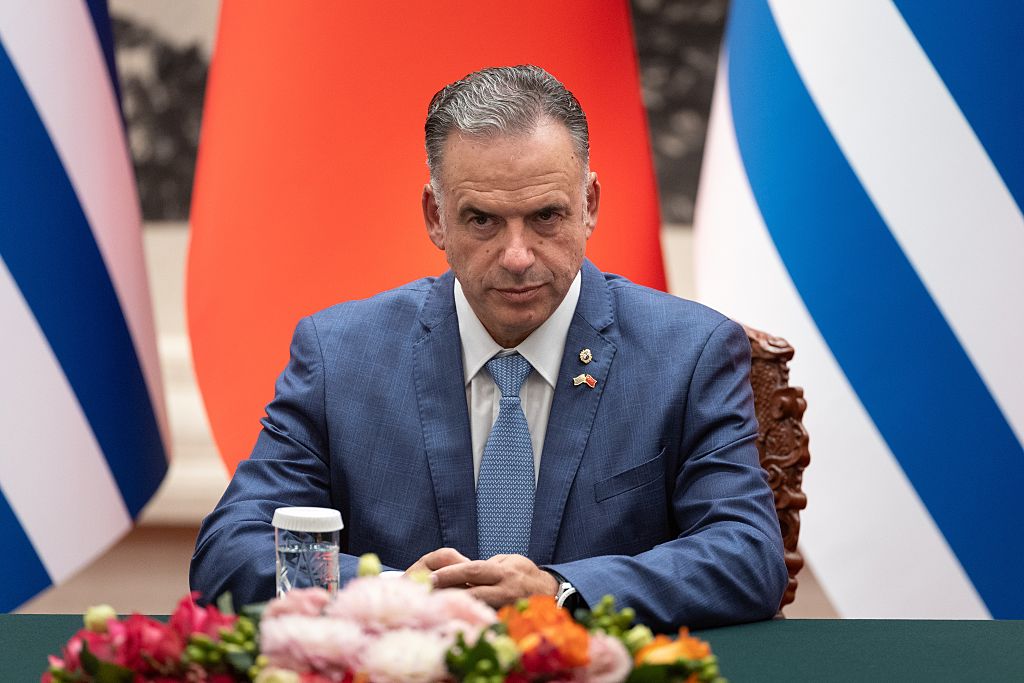Past Haunts Haitian Elections
Past Haunts Haitian Elections
After a first-round vote fraught with controversy, Haiti's electoral commission has removed the ruling-party candidate from the March 20 runoff. Meanwhile, the return from exile of two past presidents muddies Haiti's political landscape.
In the latest installment of Haiti’s electoral saga, the ruling party’s hand-picked presidential candidate will be slashed from second-round ballots. The country’s electoral commission (CEP) announced on February 3 that Jude Celestín will not be included in the runoff vote on March 20. The voting body’s ruling comes after an Organization of American States’ (OAS) investigation confirming allegations of fraud and irregularities in the November 28 presidential election. Adding to the high-pressure atmosphere in the Caribbean country is the return from exile of deposed strongman Jean-Claude “Baby Doc” Duvalier and exiled ex-President Jean-Bertrand Aristide.
U.S. Secretary of State Hillary Clinton landed in Port-au-Prince on January 30 for a one-day visit aimed at convincing Haitian lawmakers to accept and act on the OAS findings. When asked about the looming February 7 deadline for current President René Préval to step down, Clinton stated that she would be discussing “timing concerns” and “issues of continuing government,” highlighting questions about the effect a power vacuum might have on the fragile country. Clinton did, however, state that Washington would not halt aid to the earthquake-battered country in the face of political upheaval.
Préval could see his mandate extended to May 7, given that his own inauguration was delayed by three months in 2006. The CEP set a runoff vote for March 20, rescheduling it from January 16 due to controversy surrounding the initial November 28 vote. Initial results will be released March 31. This second round of voting will see former first lady and opposition matriarch Mirlande Manigat up against Michel "Sweet Mickey" Martelly, the former pop musician originally bumped out of the second round by Celestín with less than a percentage point’s worth of ballots. Martelly protested those results due to the CEP’s close relations with the governing party and the voter fraud allegations that sparked the OAS investigation.
In the midst of a controversial election process and fears of a leadership vacuum, two banished ghosts of Haiti’s political past are revisiting the country. Jean-Bertrand Aristide, a two-time Haitian president exiled in South Africa since 2004, has been granted a diplomatic passport. The ousted leader continues to have a strong following in Haiti, where his party Famni Lavalas was kept off the November ballots based on a technicality. Some suggest Aristide’s return could lead to calls to hit rewind and restart the election process.
Adding to a murky political spectrum is the return of “Baby Doc” Duvalier on January 16. “I am currently in Haiti to help the Haitian people in their reconstruction," said the former dictator, exiled in France for 25 years. But the timing of his return raises questions, particularly in connection with a new law in Switzerland, where Duvalier holds over $5 million frozen by the authorities since 1986. The “Restitution Act” that went into effect on February 1 allows the Swiss government to forfeit these funds and return them to Haiti, although Duvalier still has “the opportunity to demonstrate the legal origin of the frozen funds.” Though authorities have not detained him, Duvalier faces charges of corruption and crimes against humanity.
Learn more:
- Watch a video of a Council of the Americas panel discussion on Haitian recovery efforts a year after the country was struck by an earthquake.
- Haitian Provisional Election Council website.
- The Miami Herald’s Haiti page.
- Reuters’ factbox on the Haitian runoff candidates.
- Mirlande Manigat’s party website.
- Michel "Sweet Mickey" Martelly website.
- Jude Celetín’s website.







